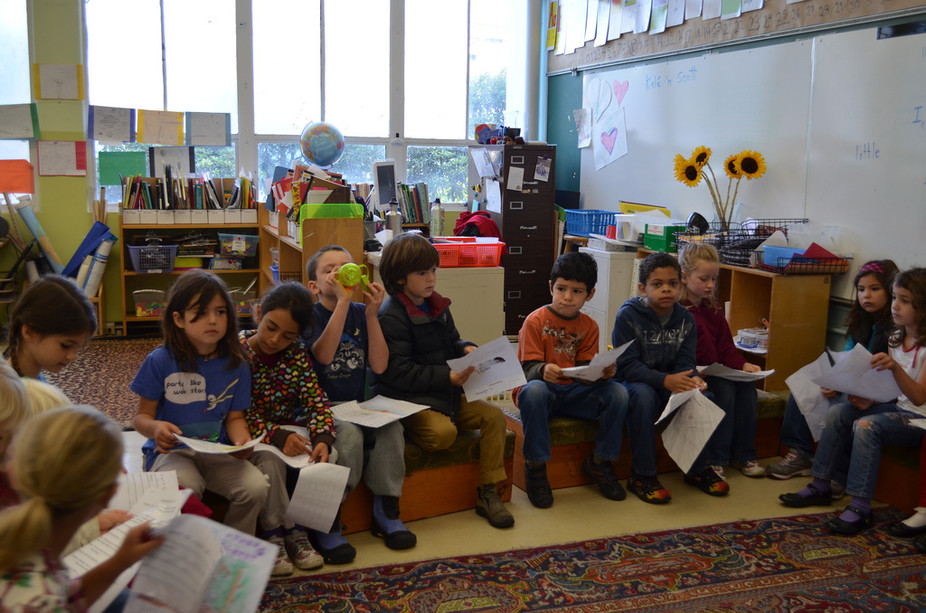Why the charter school debate has moved beyond ‘better’ or ‘worse’

Joshua Cowen, Michigan State University
The charter school debate is getting even more heated. Recently, charter opponents launched a campaign from the steps of the Massachusetts State House to warn that charter schools were “sapping resources from the traditional schools that serve most minority students, and creating a two-track system.” Similar opposition has been voiced by critics across the country as well.
So when it comes to educating kids, are charter schools good or bad?
Differing views
Minnesota authorized the first charter schools in 1991. Charter schools are public schools that are independent and more autonomous than traditional schools and typically based around a particular educational mission or philosophy.
Charters’ governance structure – who can operate a charter and what kind of oversight they face – varies by state. For example, while charter schools in some states are managed by nonprofit organizations, in other states they are run for a fee by for-profit companies.
Regardless, over the years, an increasing number of students have been enrolling in charter schools. At present there are more than three million students enrolled in 6,700 charter schools across 42 states. Nationally, charter school enrollment has more than tripled since 2000.
The response to charter prevalence is varied: proponents say these schools provide a vital opportunity for children to attend high-quality alternatives to traditional public schools. Especially when those traditional schools are struggling or underperforming.
Opponents, like those in Boston, say charter schools are threats to the very idea of public schooling – they weaken neighborhood schools by reducing enrollment, capturing their funding and prioritizing high-ability students instead of those most in need of educational improvements.
What’s the evidence?
As a researcher who studies school choice, I know that many of these arguments are reflected in evidence. But, the truth is, when you look nationwide, the effects of charter schooling on student test scores are mixed – charters in some states do better than traditional public schools, worse or about the same in others.
Research has been less ambiguous when it comes to educational attainment. We know that kids from Boston charter schools, for example, are more likely to pass the state’s high school exit exam “with especially large effects on the likelihood of qualifying for a state-sponsored college scholarship.” Charters also “induce a clear shift from two-year to four-year colleges.”
What’s more, a new study published in the Journal of Policy Analysis and Management (the top peer-reviewed policy journal in the country) has shown that students from charter schools not only persist longer in college than those from traditional public schools, but also earn more in income later.
But critics charge that charters achieve these kinds of effects by pushing out kids with learning disabilities or problematic behavior – or avoid such children altogether.

Critics say that charter schools tend to push out underperforming children. Neon Tommy, CC BY-SA
There are also concerns that charter advantages are rooted in new patterns of racial/ethnic segregation because white and minority families may choose schools with more children of the same race or ethnicity.
Then there is the understudied issue of teachers in charter schools. Most of these teachers are not unionized, which remains a source of major tension between charter and traditional public school advocates.
We know, for example, that charter teachers tend to exit schools at higher rates than other public teachers, which, all else being equal, could be detrimental to student outcomes.
But we also know that charter administrators may prioritize teacher effectiveness and other attributes in making staffing and compensation decisions. This differs from traditional schools, where teachers’ pay and job retention are not usually linked to their classroom performance.
What do parents think?
Public opinion about charter schools varies along with this evidence.
A recent national poll indicated that 51 percent of all Americans support the idea of charter schooling. Only 27 percent actively opposed charters, which means almost as many Americans either don’t like or don’t have an opinion about these schools as those who do and support them.
What might explain some of these differences?
A massive new survey of parents in urban areas across the country provides some insight.
Respondents in these urban areas were far more supportive of school choice generally and charter schools in particular than the national average: no less than 83 percent (in Tulsa) and as much as 91-92 percent (in Atlanta, Boston, Memphis, New Orleans and New York City) agreed that parents should have more school choices.
No less than 58 percent (in New York City) and as much as 74 percent (in Atlanta, Boston, Los Angeles and New Orleans) believed that overall, charter schools improve education.

What do parents think? Henry de Saussure Copeland, CC BY-NC
In that survey, there was a direct correlation between respondents’ perceptions of surrounding public school quality and support for charter schools: the worse parents believed their traditional schooling options to be, the more they favored charter schools.
Charters are here to stay
So, where do we go from here?
Scholars like me tend to conclude our studies by saying “we need more evidence.” And on charter schools, that’s true: we need to know more. But on the big questions of public policy – and education certainly is one of these – research tends to go only so far.
Rigorous evidence can tell us about differences between charter and traditional schools. But it cannot solve a more fundamental and subjective disagreement about whether public education should or should not continue to exist largely as it has for the last century.
This is especially true whenever we add the caveat – “it depends.”
Whether charter schools are better for kids than traditional public schools appears to depend on which charter schools we are talking about, and in which states.
So too does the question of whether charters exist to help all kids or to provide a specialized education to a few. And whether parents see charters as a positive force in their communities appears to depend on their sense that traditional schools will provide what they need for their children.
In my view, one thing seems certain: charter schools are here to stay. Already, there are more of them every year.
So, it’s time to move the debate away from “are charters good or bad for kids” and to a more careful consideration of the strengths and weaknesses of the charter approach in many different places.
Charter proponents can and should recognize that not all charter schools are superior to the traditional public model. Charter critics should note that traditional public schools have failed many families – especially poor families and families of color – and there are reasons many have turned to alternative education providers.
More evidence is needed, to be sure, but these basic realities are likely to remain.
![]()
Joshua Cowen, Associate Professor of Educational Policy, Michigan State University
This article was originally published on The Conversation. Read the original article.






